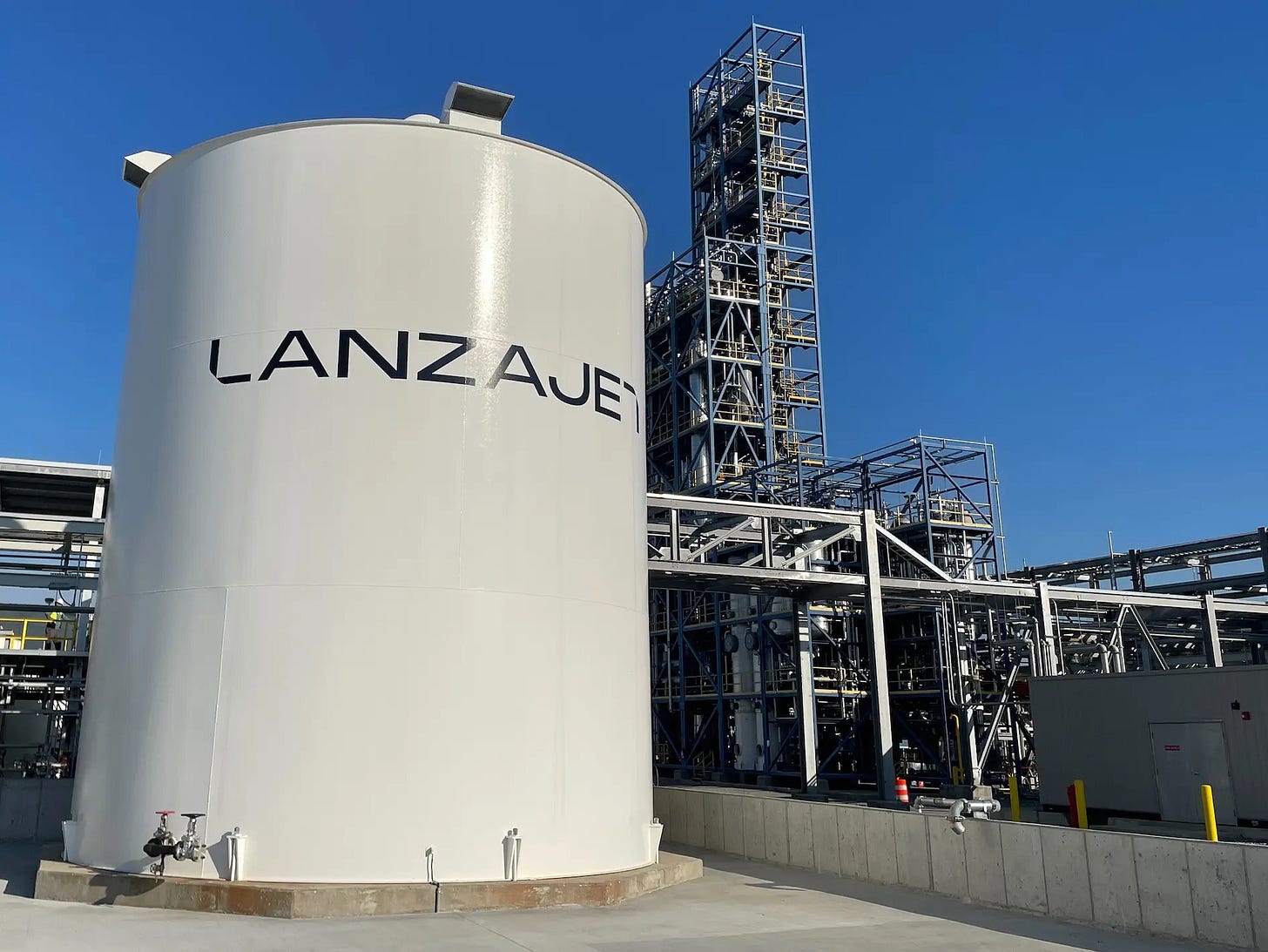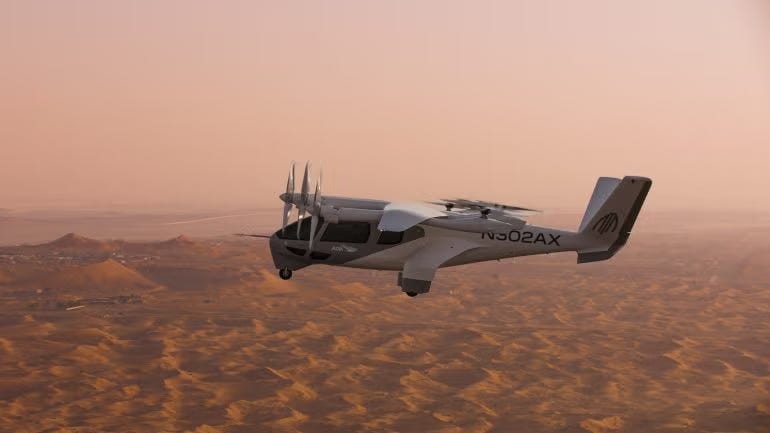#Sustainability20: World's first – LanzaJet brings ethanol-to-jet sustainable aviation fuel to commercial scale & more
Weekly Roundup - 14/11/25
Each Friday, we publish a round-up of the 20 most important stories on sustainable aviation. You can see previous editions of #Sustainability20 here.
Industry Updates
Singapore will introduce a SAF levy on departing passengers from October 2026, with fees ranging from S$1 to S$41.60 based on destination and travel class.
The European Commission has secured commitments from over twenty airlines to stop using misleading environmental claims, such as implying CO2 emissions can be fully offset.
AACO, SITA, and Amadeus have launched a new initiative to combine operational and booking data, aiming to provide more accurate and transparent aviation emissions reporting.
A Rolls-Royce led project will test if targeted SAF use on specific flights can more effectively reduce climate-warming contrails.
CLIMATE WATCH: Datacenters meet resistance over environmental concerns as AI boom spreads in Latin America - The Guardian
Communities in Latin America are resisting new datacentres over environmental concerns, accusing governments of deregulating assessments and lacking transparency about resource use.
Infrastructure and operational efficiencies
Long Beach Airport has reduced its greenhouse gas emissions by 56% since 2016, surpassing its climate goals and renewing its carbon accreditation.
Sustainable Aviation Fuel (SAF)
LanzaJet has achieved a global first, confirming its Freedom Pines Fuels plant is fully operational and producing commercial-scale SAF from ethanol.
Aster and Aether Fuels will develop a commercial-scale SAF facility in Singapore to transform waste gas into fuel, with operations planned for 2028.
PETRONAS has delivered Malaysia’s first blended SAF to KL International Airport, marking a milestone for the country’s domestic SAF supply.
NXTClean Fuels has selected Topsoe’s technology for a new US facility, positioning it to become the largest greenfield SAF project in the country.
An aircraft manufacturer has warned that Australia must implement a SAF mandate within six months to avoid missing a $13 billion annual market opportunity.
A new study has found that converting municipal solid waste into SAF could cut lifecycle emissions by up to 90% compared to fossil jet fuel.
FedEx has begun using blended SAF at Chicago-O’Hare and Miami airports, expanding its SAF deployments to three major US hubs.
New technology: Electric and Hydrogen
Several electric vertical take-off and landing aircraft developers are exhibiting at the Dubai Airshow as the UAE emerges as a key early market for air taxis.
Archer Aviation has concluded a flight test campaign for its Midnight aircraft in the UAE, assessing its performance in local desert conditions.
Abu Dhabi has announced plans for a network of over ten vertiports to support future electric air taxi services across the emirate.
Joby Aviation has signed an agreement with Saudi Arabia’s civil aviation authority to facilitate the introduction of electric air taxi services in the country.
Hybrid Air Vehicles picks ZeroAvia for hydrogen-electric Airlander - Aerospace Testing International
ZeroAvia and Hybrid Air Vehicles will partner to develop a hydrogen-electric variant of the Airlander 10 airship, aiming for zero-emission flights.
The University of Bristol has joined an Australian research project to study noise reduction for air taxi landing sites using a patented vertipad system.
Joby Aviation has completed the first flight of a turbine-electric, autonomous demonstrator aircraft, developed in partnership with L3Harris Technologies.
Anduril has unveiled the Omen, a new vertical takeoff and landing drone, and will co-develop it with the UAE’s EDGE Group, with an order for 50 units.







